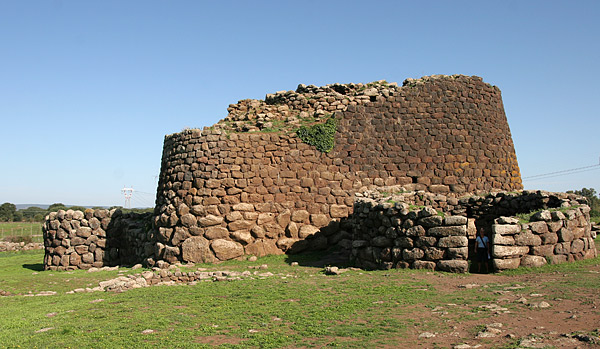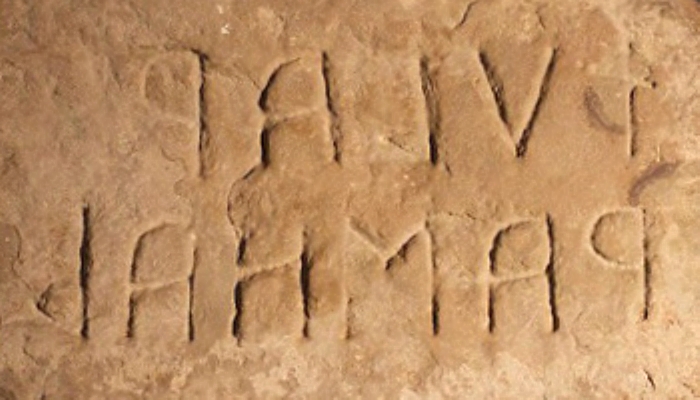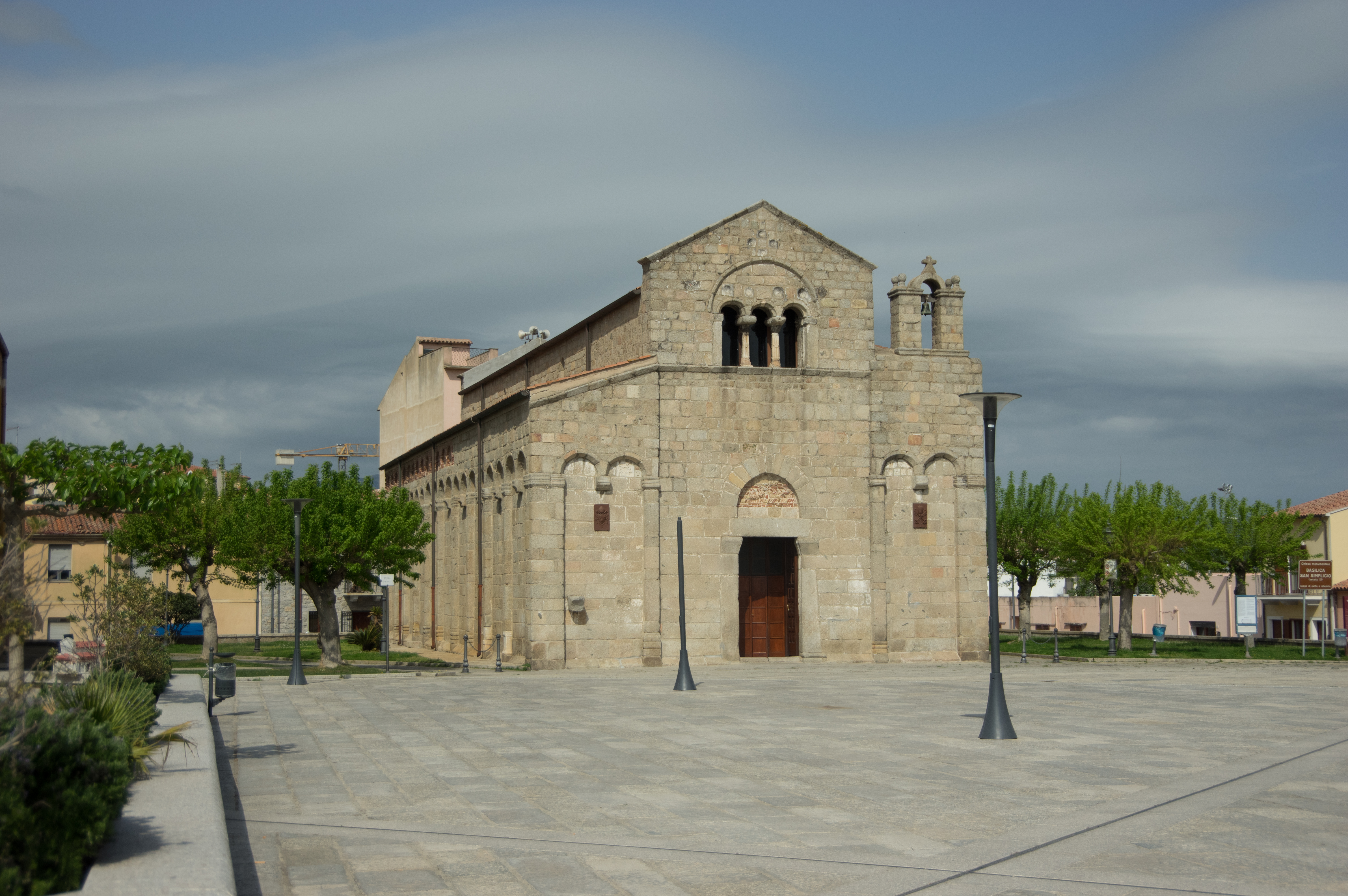|
Corsica Et Sardinia
The Province of Sardinia and Corsica () was an ancient Roman province including the islands of Sardinia and Corsica. Pre-Roman times The Nuragic civilization flourished in Sardinia from 1800 to 500 BC. The ancient Sardinians, also known as Nuragics, traded with many different Mediterranean peoples during the Bronze Age and early Iron Age, especially with the Myceneans and the Cypriots. Sardinians also built many coastal settlements, like Nora and Tharros, and the characteristic tower buildings the island is known for, the nuraghes. The similar Torrean civilization also developed in Southern Corsica, where several ''torri'' were built. The ancient Sardinians had reached a high level of cultural complexity, building large federal sanctuaries, where the Nuragic communities gathered to participate in the same rituals during festivities. The Nuragic people were able to organize themselves and accomplish several complex projects, such as building refined temples, hydraulic i ... [...More Info...] [...Related Items...] OR: [Wikipedia] [Google] [Baidu] |
Roman Province
The Roman provinces (, pl. ) were the administrative regions of Ancient Rome outside Roman Italy that were controlled by the Romans under the Roman Republic and later the Roman Empire. Each province was ruled by a Roman appointed as Roman governor, governor. For centuries, it was the largest administrative unit of the foreign possessions of ancient Rome. With the administrative reform initiated by Diocletian, it became a third level administrative subdivision of the Roman Empire, or rather a subdivision of the Roman diocese, imperial dioceses (in turn subdivisions of the Praetorian prefecture, imperial prefectures). History A province was the basic and, until the Tetrarchy (from AD 293), the largest territorial and administrative unit of the empire's territorial possessions outside Roman Italy. During the republic and early empire, provinces were generally governed by politicians of Roman senate, senatorial rank, usually former Roman consul, consuls or former praetors. ... [...More Info...] [...Related Items...] OR: [Wikipedia] [Google] [Baidu] |
Nuraghe
The nuraghe, or nurhag, is the main type of ancient megalithic Building, edifice found in Sardinia, Italy, developed during the History of Sardinia#Nuragic period, Nuragic Age between 1900 and 730 BC. Today it has come to be the symbol of Sardinia and its distinctive culture known as the Nuragic civilization. More than 7,000 nuraghes have been found, though archeologists believe that originally there were more than 10,000. Etymology Natively, the structure is called a ''nuraghe'' (, ; plural: Logudorese dialect, Logudorese Sardinian , Campidanese dialect, Campidanese Sardinian , Italian language, Italian ). According to the ''Oxford English Dictionary'' the etymology is "uncertain and disputed": "The word is perhaps related to the Sardinian place names ''Nurra'', ''Nurri'', ''Nurru'', and to Sardinian ''nurra'' 'heap of stones, cavity in earth' (although these senses are difficult to reconcile). A connection with the Semitic base of Arabic ''nūr'' 'light, fire, etc.' is ... [...More Info...] [...Related Items...] OR: [Wikipedia] [Google] [Baidu] |
Titus Manlius Torquatus (dictator)
Titus Manlius Torquatus (before 279 BC – 202 BC) was a politician of the Roman Republic. He had a long and distinguished career, being consul in 235 BC and 224 BC, censor in 231 BC, and dictator in 208 BC. He was an ally of Fabius Maximus "Cunctator". Family background Titus belonged to the patrician ''gens'' Manlia, one of the most important '' gentes'' of the Republic. It already counted 13 consulships, and 14 consular tribuneships before him. Titus' ancestry is a bit uncertain as the Fasti Consulares list him with the same filiation ("son of Titus, grandson of Titus") as Aulus Manlius Torquatus Atticus, who was consul two times in 244 BC and 241 BC, as well as censor in 247 BC, and possibly princeps senatus. Münzer tentatively supposed that Aulus was Titus' uncle. Titus' father and grandfather are not known, but his great-grandfather—also named Titus—was consul in 299 BC. The cognomen ''Torquatus'' was first received by Titus' ancestor Titus Manlius Imperi ... [...More Info...] [...Related Items...] OR: [Wikipedia] [Google] [Baidu] |
Corsicans
The Corsicans ( Corsican, Italian: ''Corsi''; French: ''Corses'') are a Romance-speaking ethnic group, native to the Mediterranean island of Corsica, a territorial collectivity of France. Origin and history The island was populated since the Mesolithic (''Dame de Bonifacio'') and the Neolithic by people who came from the Italian peninsula, especially the modern regions of Tuscany and Liguria. An important megalithic tradition developed locally since the 4th millennium BC. Reached, like Sardinia, by Polada culture influences in the Early Bronze Age, in the 2nd millennium BC Corsica, the southern part in particular, saw the rise of the Torrean civilization, strongly linked to the Nuragic civilization. The modern Corsicans are named after an ancient people known by the Romans as '' Corsi''. The ''Corsi'', who gave their name to the island, actually originated from the Northeastern part of Nuragic Sardinia ( Gallura). According to Ptolemy, the Corsi were made up of a l ... [...More Info...] [...Related Items...] OR: [Wikipedia] [Google] [Baidu] |
First Punic War
The First Punic War (264–241 BC) was the first of three wars fought between Rome and Carthage, the two main powers of the western Mediterranean in the early 3rd century BC. For 23 years, in the longest continuous conflict and greatest naval war of antiquity, the two powers struggled for supremacy. The war was fought primarily on the Mediterranean island of Sicily and its surrounding waters, and also in North Africa. After immense losses on both sides, the Carthaginians were defeated and Rome gained territory from Carthage. The war began in 264 BC with the Romans gaining a foothold on Sicily at Messana (modern Messina). The Romans then pressed Syracuse, the only significant independent power on the island, into allying with them and laid siege to Carthage's main base at Akragas. A large Carthaginian army attempted to lift the siege in 262 BC but was heavily defeated at the Battle of Akragas. The Romans then built a navy to challenge the Carthaginians ... [...More Info...] [...Related Items...] OR: [Wikipedia] [Google] [Baidu] |
Mercenary War
The Mercenary War, also known as the Truceless War, was a mutiny by troops that were employed by Ancient Carthage, Carthage at the end of the First Punic War (264241 BC), supported by uprisings of African settlements revolting against Carthaginian control. It lasted from 241 to late 238 or early 237 BC and ended with Carthage suppressing both the mutiny and the revolt. The war began in 241 BC as a dispute over the payment of wages owed to 20,000 foreign soldiers who had fought for Carthage in Sicily during the First Punic War. When a compromise seemed to have been reached, the army erupted into full-scale mutiny under the leadership of Spendius (Mercenary War), Spendius and Mathos, Matho. 70,000 Africans from Carthage's oppressed dependent territories flocked to join them, bringing supplies and finance. War-weary Carthage fared poorly in the initial engagements of the war, especially under the generalship of Hanno II the Great, Hanno. Hamilcar Barca, a veteran ... [...More Info...] [...Related Items...] OR: [Wikipedia] [Google] [Baidu] |
Etruscan Civilization
The Etruscan civilization ( ) was an ancient civilization created by the Etruscans, a people who inhabited Etruria in List of ancient peoples of Italy, ancient Italy, with a common language and culture, and formed a federation of city-states. After adjacent lands had been conquered its territory covered, at its greatest extent, roughly what is now Tuscany, western Umbria and northern Lazio, as well as what are now the Po Valley, Emilia-Romagna, south-eastern Lombardy, southern Veneto and western Campania. A large body of literature has flourished on the origins of the Etruscans, but the consensus among modern scholars is that the Etruscans were an indigenous population. The earliest evidence of a culture that is identifiably Etruscan dates from about 900 BC. This is the period of the Iron Age Villanovan culture, considered to be the earliest phase of Etruscan civilization, which itself developed from the previous late Bronze Age Proto-Villanovan culture in the same region, p ... [...More Info...] [...Related Items...] OR: [Wikipedia] [Google] [Baidu] |
Ancient Carthage
Ancient Carthage ( ; , ) was an Ancient Semitic-speaking peoples, ancient Semitic civilisation based in North Africa. Initially a settlement in present-day Tunisia, it later became a city-state, and then an empire. Founded by the Phoenicians in the ninth century BC, Carthage reached its height in the fourth century BC as one of the largest ''metropoleis'' in the world.George Modelski, ''World Cities: –3000 to 2000'', Washington DC: FAROS 2000, 2003. . Figures in main tables are preferentially cited. Part of former estimates can be read at Evolutionary World Politics Homepage Archived 2008-12-28 at the Wayback Machine It was the centre of the Carthaginian Empire, a major power led by the Punic people who dominated the ancient western and central Mediterranean Sea. Following the Punic Wars, Carthage was Siege of Carthage (Third Punic War), destroyed by the Romans in 146 BC, who later rebuilt Roman Carthage, the city lavishly. Carthage Phoenician settlement of No ... [...More Info...] [...Related Items...] OR: [Wikipedia] [Google] [Baidu] |
Olbia
Olbia (, ; ; ) is a city and communes of Italy, commune of 61,000 inhabitants in the Italy, Italian insular province of Sassari in northeastern Sardinia, Italy, in the historical region of Gallura. Called in the Roman age, Civita in the Middle Ages (Sardinian medieval kingdoms, Judicates period) and the Terranova Pausania until the 1940s, ''Olbia'' has again been the official name of the city since the Italian Fascism, fascist period. History Although the name is of Greek origin, due to the Greek presence during the seventh century Anno Domini, B.C., the city of Olbia was first settled either by the Nuragic civilization, Nuragics or by Phoenicians, according to the archaeological findings. It contains ruins from the Nuragic civilisation, Nuragic era to the Roman era, when it was an important port, and the Middle Ages, when it was the capital of the Giudicato of Gallura, one of the four independent states of Sardinia. During the First Punic War, the Romans fought against the Pu ... [...More Info...] [...Related Items...] OR: [Wikipedia] [Google] [Baidu] |
Aléria
Aléria (; Ancient Greek: /, ; Latin and Italian: ; ) is a commune in the Haute-Corse department of France on the island of Corsica, former bishopric and present Latin Catholic titular see. It includes the easternmost point in Metropolitan France. Administration Aléria shares the canton of Moïta-Verde with 13 other communes: Moïta, Ampriani, Campi, Canale-di-Verde, Chiatra, Linguizzetta, Matra, Pianello, Pietra-di-Verde, Tallone, Tox, Zalana and Zuani.. Geography Aléria is to the south of Bastia on Route N198, in the centre of the Plaine Orientale, also called the Plaine d'Aléria, the east-central coastal plain of the island facing Italy. It includes a number of villages and monuments. Most of the rest of the island is precipitously mountainous. The eastern coastline is punctuated by a number of lakes connecting (but not always) to the Tyrrhenian Sea, the remnant of an ancient system of lagoons behind barrier beaches. The Corsicans refer to them under ... [...More Info...] [...Related Items...] OR: [Wikipedia] [Google] [Baidu] |
Greek Colonies
Greek colonisation refers to the expansion of Archaic Greeks, particularly during the 8th–6th centuries BC, across the Mediterranean Sea and the Black Sea. The Archaic expansion differed from the Iron Age migrations of the Greek Dark Ages, in that it consisted of organised direction (see ) away from the originating ''metropolis'' rather than the simplistic movement of tribes, which characterised the aforementioned earlier migrations. Many colonies, or (, ), that were founded during this period eventually evolved into strong Greek city-states, functioning independently of their ''metropolis''. Motives Greek colonisation was typically motivated by a combination of factors, depending on the context. Many Greek city-states experienced strong economic growth with consequent overpopulation of the motherland, such that the existing territory of these Greek city-states could no longer support a growing polity. The areas where the Greeks would try to colonise were hospitable a ... [...More Info...] [...Related Items...] OR: [Wikipedia] [Google] [Baidu] |
Ancient Greece
Ancient Greece () was a northeastern Mediterranean civilization, existing from the Greek Dark Ages of the 12th–9th centuries BC to the end of classical antiquity (), that comprised a loose collection of culturally and linguistically related city-states and communities. Prior to the Roman period, most of these regions were officially unified only once under the Kingdom of Macedon from 338 to 323 BC. In Western history, the era of classical antiquity was immediately followed by the Early Middle Ages and the Byzantine period. Three centuries after the decline of Mycenaean Greece during the Bronze Age collapse, Greek urban poleis began to form in the 8th century BC, ushering in the Archaic period and the colonization of the Mediterranean Basin. This was followed by the age of Classical Greece, from the Greco-Persian Wars to the death of Alexander the Great in 323 BC, and which included the Golden Age of Athens and the Peloponnesian War. The u ... [...More Info...] [...Related Items...] OR: [Wikipedia] [Google] [Baidu] |









